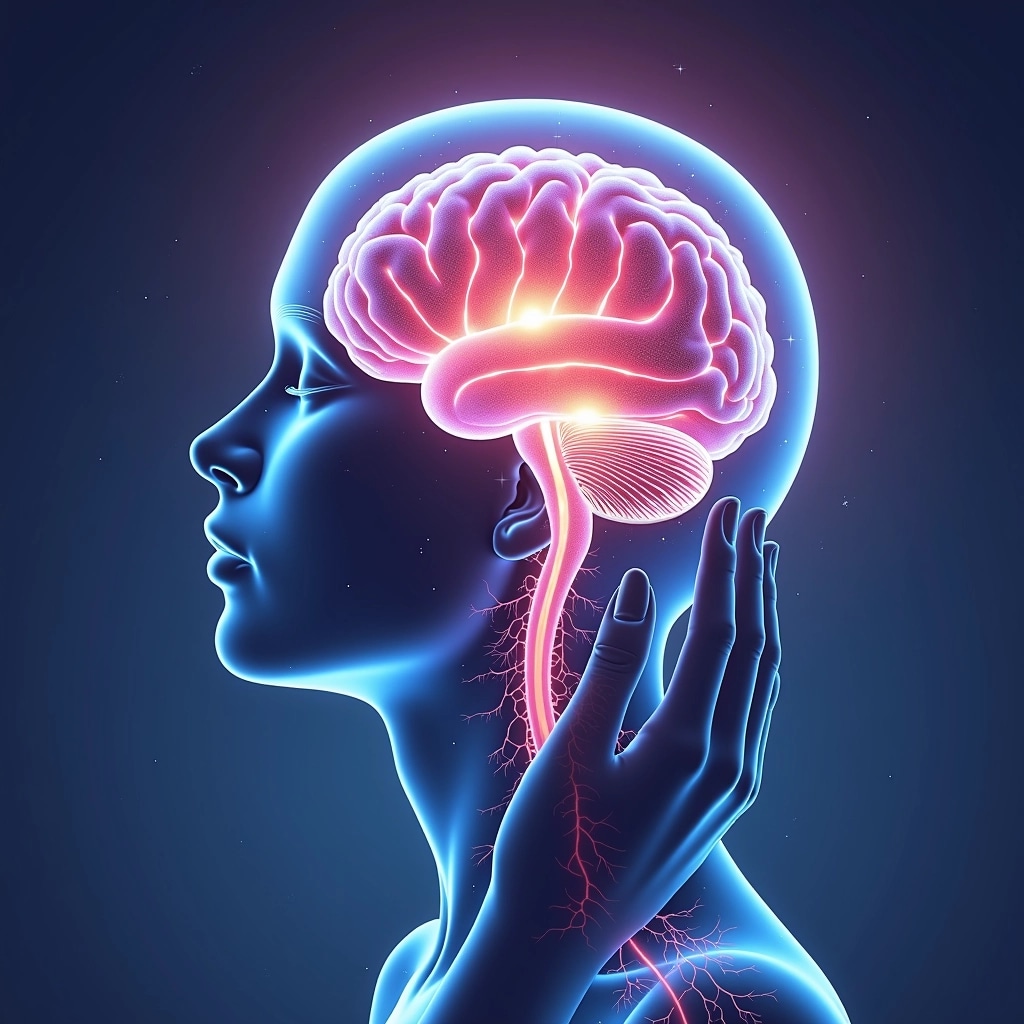Stress is a natural part of life, but when does it shift from a temporary challenge to a long-term burden on our bodies, specifically as it concerns brain health? The key differences between stress and chronic stress lie in their duration, intensity, and overall impact on well-being.
“Acute stress is typically short-term, triggered by a specific event or situation,” explained Amy Knight, Ph.D., associate professor in the UAB Department of Neurology. “It causes a temporary reaction that subsides once the stressor is resolved, allowing the body to recover and return to a balanced state. Chronic stress, on the other hand, arises when a persistent stressor lingers for an extended period with few opportunities for resolution. This can stem from financial hardship, work-related issues, relationship conflicts, or medical conditions.”
In a state of chronic stress, returning to a balanced state of rest and relaxation becomes much more challenging. Chronicity depends on the frequency and duration of stress, with the potential for the body to remain in a state of chronic inflammation. Stress-induced inflammation can lead to long-term health problems, including its effects on healthy brain functioning.
Knight explains the various ways chronic stress can affect our bodies, including brain health.
Chronic stress can lead to brain inflammation
Inflammation arises when the immune system is activated. In the brain, microglia carry out this function, working to maintain balance and respond to threats or injury.
“In a normal brain, inflammation may occur in reaction to a viral infection, pathogen exposure, or to aid in recovery after tissue damage from a traumatic brain injury,” Knight said. “Acute inflammation typically resolves over time, but it may persist for various reasons. Stress can slow down the recovery process.”
Persistent inflammation in a time of stress may have evolved as a protective mechanism. According to Knight, “In a dangerous world with physical threats, the anticipation of harm may have been helpful for recovery. However, in a world of perceived threats, stress from work or school, financial strain, relationship drama – the stress response system is generally excessive considering the absence of an objective physical threat.”
Long-term effects of stress on memory and learning
In a stressful situation, the brain reacts as if there was a physical attack on the body and activates the “fight or flight” response. This ancient survival mechanism triggers the hypothalamic-pituitary-adrenal (HPA) axis to cause physiological changes in the body through the release of stress hormones, cortisol, and adrenaline.
“The purpose of this physical change is to prepare for immediate action by increasing heart rate and energy levels,” Knight explained. “This can be helpful in fighting off a bear attack or, in modern times, surviving a car accident. However, prolonged stress can lead to persistent inflammation, which takes a significant toll on the body.”
Stress hormones encourage pro-inflammatory cytokines, which can lead to an overactive immune response. In addition, chronic inflammation can increase arterial plaques, damaging blood vessels and increasing the risk of heart attacks and strokes.
Biological markers linked to stress-induced inflammation
Specific biological markers, such as C-reactive protein (CRP), interleukin-6 (IL-6), and tumor necrosis factor-alpha (TNF-α), are associated with stress-induced inflammation. These markers play a critical role in understanding how stress affects the body on a molecular level.
“Blood tests that measure these inflammatory markers, along with stress hormones like cortisol, provide valuable insights into the overall stress burden on the body,” Knight explained.
By analyzing these biomarkers, healthcare providers can assess the severity and potential long-term impacts of stress on an individual’s physical health, particularly in relation to immune function and disease susceptibility.
The role of stress in neurodegenerative diseases
Chronic inflammation caused by stress is believed to play a significant role in the early development of neurodegenerative conditions such as Alzheimer’s and Parkinson’s disease. This persistent inflammatory state works as an accelerator to weaken neural circuitry and lower the threshold at which these diseases can manifest.
“Over time, chronic inflammation contributes to a faster breakdown of brain function, essentially speeding up the aging process and leading to an earlier onset of cognitive decline,” Knight said. “The prolonged stress response, with its sustained inflammatory impact, may thus set the stage for these devastating diseases to appear prematurely.”
Chronic stress affects sleep
A stressed brain may have trouble sleeping related to anxiety and feeling revved up, sometimes with racing thoughts that keep us up at night.
“Environmental factors like blue light from a TV or a phone screen can interfere with the normal sleep cycles and delay sleep onset,” Knight explained. “Difficulties with maintaining sleep may be related to eating sugary food or drinking alcohol before bed. Insufficient sleep can impact the regulation of the immune system and lower resilience to stress and inflammation.”
Chronic stress affects emotions and decision-making
Prolonged stress can take a toll physically, cognitively, and emotionally. People may experience multiple physical ailments, including headaches, stomach and GI distress, muscle aches, joint pain, sleep disturbances, and daily fatigue.
“Cognitive symptoms are often described as ‘brain fog’ and typically described as forgetfulness, difficulty concentrating, and slowing,” Knight explained. “Mood changes may also occur with increased anxiety, irritability, or feeling down and depressed. Inflammation can alter hormones and neurotransmitters, which can lead to mood swings.”
To learn more about stress and stress-related issues, go to stress.org.
Written by: Teresa Hick
Originally published by the Department of NeurologyHeersink School of Medicine
Image created by AI

